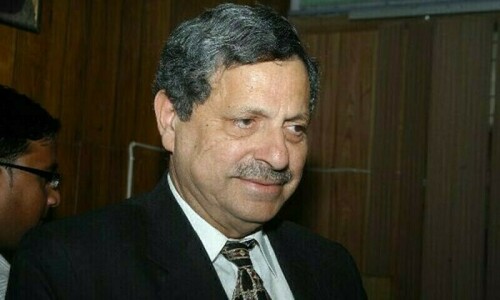MANILA, Aug 3: Muslims in the southern Philippines would have wide powers over their resource-rich local economy, including the right to revoke existing mineral contracts, if an eventual peace deal is agreed with Manila.
According to a copy of a territorial agreement, given to newsmen on Sunday, a future government of a new autonomous Muslim region, known as the Bangsamoro homeland, would have full responsibility for land use, the right to explore and exploit all potential sources of energy, both onshore and offshore, and the right to develop mineral resources.
“It is essential to lay the foundation of the Bangsamoro homeland in order to address the Bangsamoro people’s humanitarian and economic needs as well as their political aspirations,” the document reads.
The territorial deal, which expands an existing six-province autonomous region, and took over 10 years to negotiate, is set to be signed in Kuala Lumpur on Tuesday.
The agreement is a crucial step towards the resumption of formal peace talks between the Philippines’ largest Muslim rebel group, the Moro Islamic Liberation Front (MILF), and the government but it is does not guarantee an end to one of Southeast Asia’s most intractable conflicts.
If peace talks fail or stall, which analysts say is highly likely, the territorial deal will not go through. Legal attempts to halt it have already started and Catholic politicians have called protests against it for Monday.
But even signalling the right of a future government of the Bangsamoro homeland to cancel or modify existing mineral production and sharing agreements will chill foreign investors already leery of pouring funds into the Philippines due to flip-flopping laws.
“If a peace agreement is reached that would send a positive signal,” said Peter Wallace, president of consultancy firm The Wallace Business Forum.
“But we don’t have confidence of continuity of rules, laws, regulations. They seem to be changed more or less at will and this makes investment very difficult.”
A wider homeland could include, subject to plebiscite, an area on the western island of Palawan where Coral Bay Nickel Corporation, a nickel processing company, majority owned by Japan’s Sumitomo Metal Mining is based.
“I am not worried about it,” Takanori Fukimura, president of the Coral Bay Nickel Corporation said.
ENERGY RESOURCES: The agreement also gives a government of the Bangsamoro homeland joint jurisdiction with Manila over wide areas of the Sulu Sea where deposits of oil and gas are located.
Exxon Mobil has a 50 per cent participating interest in a service contract covering 860,000 hectares of the Sulu sea.
Power group Union Fenosa Gas, jointly owned by Spain’s Utility Union Fenosa and Italy’s ENI has an agreement to explore 1.3 million hectares of the Sulu sea.Both the MILF and Manila have committed to agree a final deal by November 2009 but deadlines have consistently been missed in over a decade of talks, punctuated by violent conflict.
Muslims in the south of the largely Catholic country have been seeking some form of independence for over 40 years and over 120,000 people have been killed and 2 million people displaced in fighting.—Reuters











































Dear visitor, the comments section is undergoing an overhaul and will return soon.